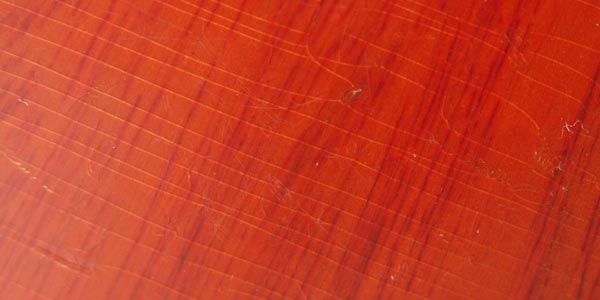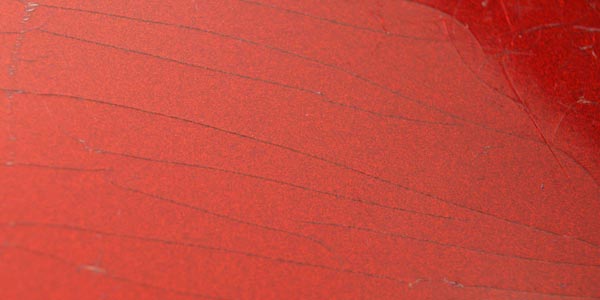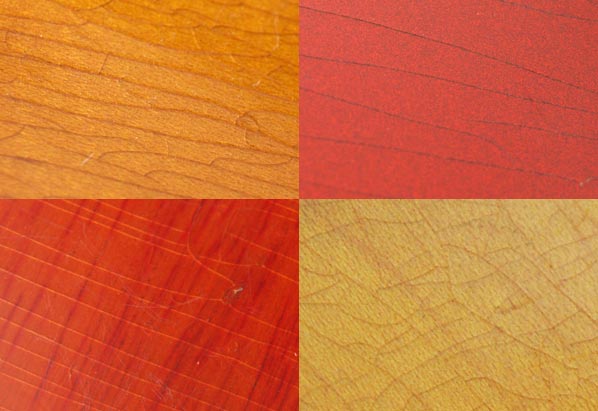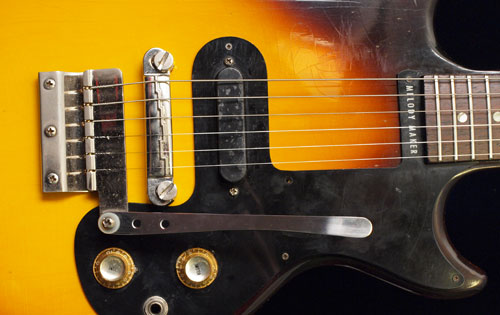This is a term that is widely used in vintage guitar circles, but it’s meaning may not be immediately obvious. Finish checking, or weather checking as it is also known, refers to the pattern of small cracks, usually comprising a series of parallel lines, but sometimes loosely checkered, that can appear on certain guitars with nitrocellulose finishes. The cracks may be loosely spaced or very tight, and can appear on any part of the guitar.
But what causes the checking? As the two names suggest, these cracks are in the finish (paint) of the guitar and are caused by extreme changes in temperature. Typically a guitar that has got cold and then warmed too quickly: maybe travelling in a cold vehicle, then brought into a warm venue – or flown in an unheated aircraft hold before landing in a warm destination. But this does not mean guitars should not travel, only that they must be allowed to acclimatize gradually.


Finish ‘checking’ may actually be in lines rather than checks Figure 1 checking in a translucent Cherry Gibson SG, Figure 2 in the Candy Apple Red of a Gibson Melody Maker
Continue reading Finish checking on a guitar. What is it, and how can I prevent it?


